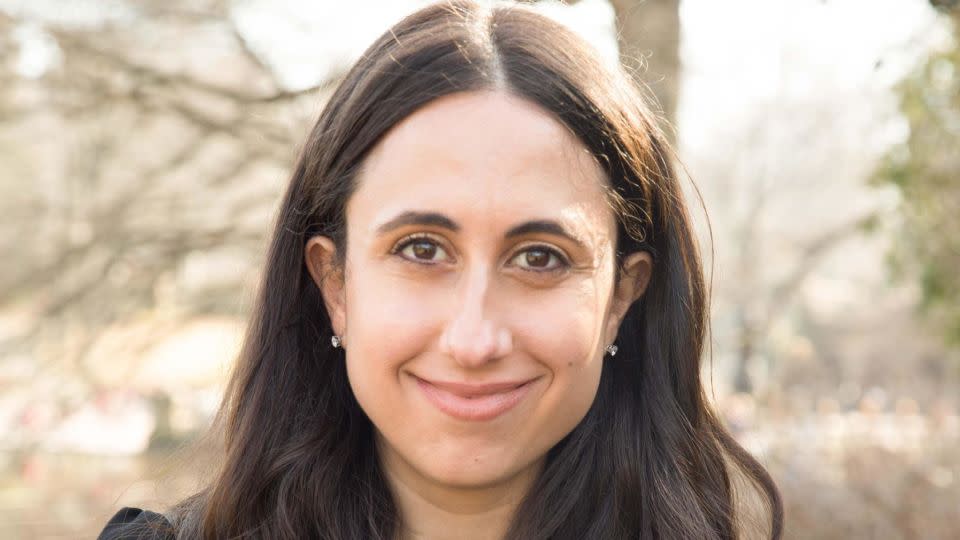Opinion: Those perfectly coiffed kids you’re seeing on social media signal that we have a problem
Editor’s note: Kara Alaimo, an associate professor of communication at Fairleigh Dickinson University, writes about issues affecting women and social media. Her book “Over the Influence: Why Social Media Is Toxic for Women and Girls — And How We Can Take It Back” will be published by Alcove Press in 2024. Follow her on Instagram, Facebook and X. The opinions expressed in this commentary are her own. Read more opinion on CNN.
Kids are back at school, and many of our social media feeds are full of pictures of children with #backtoschooloutfit inspo (inspiration) — but they don’t seem to have insisted on wearing mismatched outfits or run out of time to stand perfectly still and smile for the camera.

That’s at least in part because so much of the content we’re seeing isn’t just of our friends’ kids anymore — it’s coming from influencers and brands. Mainstream users are posting less of their lives publicly these days, so more of the content we’re seeing on platforms such as Instagram is highly curated by people trying to sell us things.
With our feeds increasingly full of content from brands and people peddling products, “platforms as we knew them are over,” University of Illinois-Chicago communications professor Zizi Papacharissi recently told The New York Times. Business Insider’s prognosis was more dire: “Social media is dead” asserted a recent headline.
In part this trend reflects a savvy realization by users that we have to protect our privacy online; more people are using closed groups or direct messages to share information about our everyday lives. But in going publicly passive on our favorite platforms, we’re also ceding the opportunity to use social media to empower ourselves and our families. Being proactive and cautious is a good thing; going silent is an approach we should all rethink.
It’s smart for users to be concerned about sharing some of their personal information online. For example, Harvard Law School lecturer Leah Plunkett writes in “Sharenthood: Why We Should Think Before We Talk About Our Kids Online” that when new parents post public birth announcements, they give potential criminals valuable information such as their children’s dates and places of birth that can help thieves try to steal their kids’ identities.
Similarly, if we name our kids’ schools online, we give scammers a potential answer to security questions our kids may use on websites in the future. And we all know the content we post online can be used against us — possibly totally out of context — in the future.
But while we should be thoughtful about how we protect truly private information, we’ve been too quick to give up on public posts entirely. After all, the promise of social media was that it would allow us all to participate in public conversations — to raise awareness of issues that are important to us, talk back to politicians and corporations when they violate our trust and help determine what authors, artists and ideas become popular.
For example, as I argue in my forthcoming book, “Over the Influence: Why Social Media is Toxic for Women and Girls — And How We Can Take It Back,” women in the US are experiencing a tidal wave of attacks on our rights and power. Roe v. Wade was overturned last year. Some of the men pushed out of power by the #MeToo movement are back — and so is “bro” culture in Silicon Valley. Between 2011 and 2021, the number of teen girls who say they were forced to have sex increased by 14%, according to the US Centers for Disease Control and Prevention.
But women could use social media more effectively to fight back against these developments — and the prevalence of misogynist content online — if more of us collectively started using our platforms to share information about issues that matter to us. And if social networks saw that more users had an appetite for this kind of content, they’d adjust their algorithms to show us more of it.
By instead passively scrolling through influencer content without making our own contributions to the public conversation unfolding on social media, we cede that power back to those who control the algorithms. What’s more, the kind of aspirational content to which we’re giving our attention — such as those back-to-school posts by influencers with perfectly coiffed kids — can leave us feeling like our lives don’t stack up.
“Marketers and advertising agencies deliberately capitalize on mothers’ (culturally constructed) feelings of inadequacy in order to convince us to buy stuff,” Sara Petersen writes in “Momfluenced: Inside the Maddening, Picture-Perfect World of Mommy Influencer Culture.”
I’m not trying to hate on influencers here, many of whom are predominantly women who rarely make a living wage from their work and are often under intense pressure to project perfect lives to attract brand sponsors. But I’d so much rather see these women make their money from content that organizes women to call on Congress to invest in child care and demand that tech companies take down the violent, hateful posts about girls that are endemic on their platforms.
Let’s not pull back from protecting the privacy of ourselves and our families online. But let’s also think twice about passively scrolling through rather than producing public content on our social apps. If we all started sharing back-to-school content about what being a mom is really like — whether it’s talking about sending our kids to schools with poor air quality that could be bad for their health or how American workers are often expected to be present in the office long after school lets out — we might change some things. Then, instead of influencer images, it could be our actual lives that look a little more rosy.
For more CNN news and newsletters create an account at CNN.com

